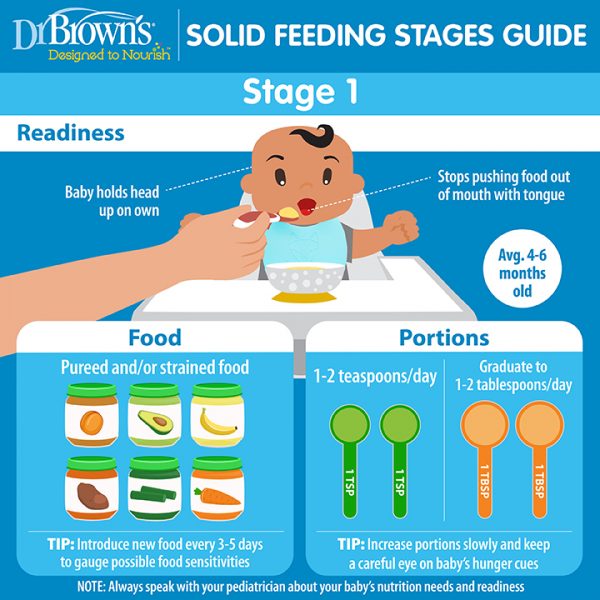 Source: bing.com
Source: bing.comTable of Contents
Introduction
As a new parent, you might be wondering how to navigate the confusing world of baby feeding. It can be challenging to know what to feed your baby and when to start introducing new foods. That’s why understanding the baby eating development stages is crucial. In this article, we’ll take a closer look at the different baby eating development stages, what to expect, and how to make the feeding process as smooth as possible.
Stage 1: The Milk-Only Stage
During the first few months of life, your baby will rely solely on breastmilk or formula. At this stage, your baby’s digestive system is not yet fully developed, and their tiny tummies can only handle small amounts of liquid at a time. So, you’ll need to feed your baby often, typically every 2-3 hours. Breastmilk or formula provides all the necessary nutrients and hydration during this stage, so you don’t need to worry about introducing solid foods just yet.
Stage 2: The Introduction of Solids
Around 6 months old, you can start introducing solid foods to your baby. During this stage, your baby will still get most of their nutrients from breastmilk or formula, but solid foods will provide additional nutrition and help your baby learn how to eat. Start with pureed or mashed foods that are easy to swallow and digest, such as rice cereal, pureed fruits and vegetables, and oatmeal. Offer a small amount at a time, usually once a day, and gradually increase the amount over time. It’s crucial to introduce one food at a time and wait a few days before introducing anything new to monitor for any allergic reactions.
Stage 3: The Development of Texture
Around 8-9 months old, your baby will start to develop their chewing and swallowing skills. During this stage, you can start offering foods with more texture, such as small pieces of soft fruits and vegetables, mashed beans, and soft pasta. Your baby might start to show interest in feeding themselves, so offer finger foods that are easy to pick up, such as small pieces of avocado or banana. Continue breastmilk or formula feeds alongside solid foods until your baby is around 12 months old and you transition to cow’s milk or a toddler formula.
Stage 4: The Transition to Family Foods
Around 12 months old, your baby will have developed many of the skills necessary to eat the same foods as the rest of the family. During this stage, you can offer a wider variety of foods in appropriate portions, including meats, dairy, and grains. Be mindful of choking hazards and continue to offer a mix of soft foods and finger foods. Encourage your baby to use utensils and offer plenty of opportunities for self-feeding. By this point, your baby should be weaned off breastmilk or formula and onto cow’s milk or a toddler formula.
Conclusion
By understanding the different baby eating development stages, you can make the feeding process as smooth and enjoyable as possible for both you and your baby. Remember to always offer a variety of foods, introduce one food at a time, and monitor for any allergic reactions. As your baby develops their feeding skills, encourage self-feeding and offer appropriate portions of family foods. With a little patience and practice, you and your baby can navigate the exciting world of food together!
- When can I start giving my baby solid foods?
- What types of foods should I start with?
- When can I start offering foods with more texture?
- When should I transition my baby off breastmilk or formula?
- What should I do if my baby shows signs of an allergic reaction?
You can start offering solid foods around 6 months old.
Start with pureed or mashed foods that are easy to swallow and digest, such as rice cereal, pureed fruits and vegetables, and oatmeal.
Around 8-9 months old, your baby will start to develop their chewing and swallowing skills, and you can start offering foods with more texture.
You should transition your baby off breastmilk or formula and onto cow’s milk or a toddler formula around 12 months old.
If your baby shows signs of an allergic reaction, such as hives, itching, or vomiting, stop feeding them the food and contact your pediatrician.
